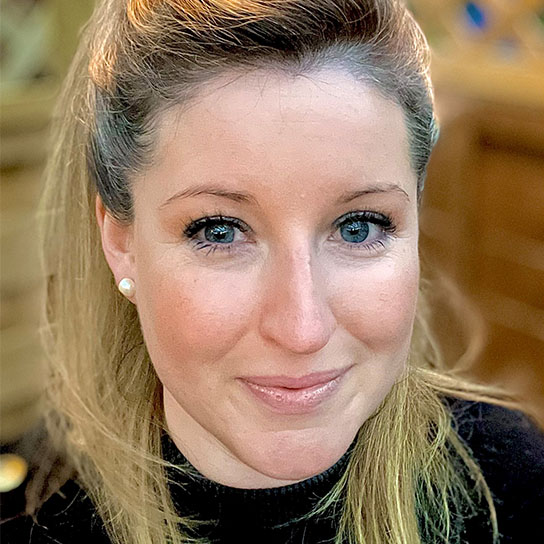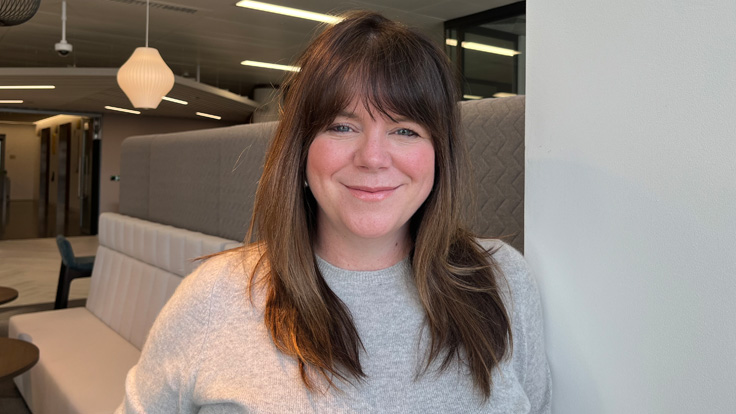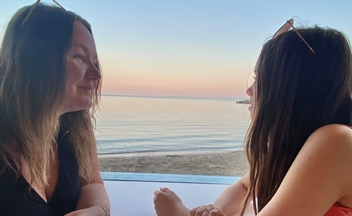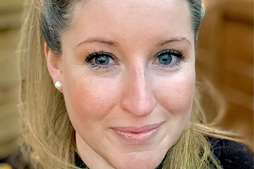It’s estimated that around 1 in 5 of the UK population is neurodiverse. But despite this, there’s still stigma and a huge amount of misinformation about what it means. The talents, skills and unique ways of thinking that neurodivergent people have are still too often not understood, and fully celebrated in the workplace and outside. I want to help change that.
Neurodiversity refers to the different ways the human brain interprets and processes information and covers a wide umbrella of conditions, including Autism Spectrum Disorder (ASD), Dyslexia, Attention Deficit Hyperactivity Disorder (ADHD) and Dyscalculia. It’s common for someone with one of these conditions to have another too – and it’s important to remember that these can present in different ways, depending on factors like gender.
My personal experience is that I have ADHD and Dyslexia, and my sister is profoundly Dyslexic, Dyscalculic and Dyspraxic.
This means that I have first-hand, lived experiences of both the challenges that neurodiverse people face but also the talents, skills and abilities that they can bring, including to the workplace.
Neurodiverse people commonly have what is referred to as a ‘spiky’ profile; meaning they struggle with some tasks but excel in others. This means that, far too often, employers are not tapping into the full potential of neurodiverse colleagues.
In our industry, several of the traits that many neurodiverse people exhibit are incredibly useful – things like good attention to detail, excellent pattern recognition, great problem solvers and the ability to think differently – and sometimes more creatively – about tasks, potentially leading to greater innovation.
I really want us to focus much more on these strengths – or ‘superpowers’ – and to find ways to make simple adjustments that help neurodivergent people to bring their whole selves to work and fulfil their potential.
Often, these adjustments are small. For example, being more specific when giving instructions for a task can make a huge difference to colleagues that are neurodiverse, but also to those who are so-called neurotypical too.
I’ve found my niche and, through tenacity, have managed to find a role in which I can play to my strengths. But I believe that neurodivergent people shouldn’t have to struggle to be able to have fulfilling jobs that tap into their talent and skills. As a company, RSA (and our parent, Intact) is working to make our environment inclusive for all colleagues – and customers too.
Inclusive workplaces benefit all colleagues
Research shows that neuro-inclusive environments don’t just benefit neurodivergent people, they benefit everyone.
Creating workplaces that are universal is hugely important not just for those living with neurodiversity, but for the wellbeing of all colleagues. Studies from various large employers, including Microsoft and Hewlett Packard, have found that when companies take steps to create a neuro-inclusive environment, overall colleague engagement, wellbeing and team productivity increases by as much as 30%.
The adjustments don’t necessarily have to be major; in fact, many are just simple steps that create a more universal workplace where all colleagues can flourish. Examples of this are the effective use of hybrid working, and accessibility tools increasingly being provided as part of software packages.
Supporting this, RSA is working with several specialists, including a company called Plain Numbers, that seek to address low numerical literacy, which is the top customer vulnerability according to FCA research. The Plain Numbers methodology works by improving how numbers are displayed in order to improve understanding by utilising “fast and slow” thinking. We’re using it in both customer and colleague communications, and the ‘before’ and ‘afters’ are really amazing.
Equally, following a successful pilot, we’re now in the process of rolling out a corporate licence for market-leading ‘text-to-speech' and dictation software, Texthelp. I was lucky enough to be part of the pilot and the software was a real game changer for me. What’s great about having a corporate licence is that people can access it without needing a formal diagnosis or disclosing their condition, which has been a barrier in the past.
Opening up the conversation
To create neuro-inclusive workforces, we need to find ways not only to tweak processes and give people tools, we also need to find ways to open up the conversation around neurodiversity. We need to normalise it and improve understanding at all levels of the company and beyond.
Here at RSA, we have run a successful campaign sharing stories from colleagues who are either neurodiverse themselves or parents with neurodiverse children. This has been a great way of increasing awareness and understanding.
The stories have been followed up with supporting material to deepen people’s understanding, and also provide supporting strategies and tips. We’ve been bowled over by the response we’ve had on this campaign and so will be running it throughout the year, to support our celebration of neurodiverse observance days.
Often leaders may not have a good understanding of the challenges that neurodivergent people face – and, indeed, the talent and skills they may bring to the workplace. They therefore may not have the language to have these conversations; the stories and training resources help to address this.
Additionally, we’ve set up a neurodiversity community – again for both people who are neurodiverse and also parents with children who are neurodiverse – where people can share their experiences and support each other’s journeys. I know my mother would have greatly appreciated something like this when my sister and I were growing up.
Also, having a Group Ambassador for Neurodiversity is a really important step in helping these conversations to happen.
Speaking up isn’t always easy and requires making yourself vulnerable – it’s not something everyone feels comfortable with, or even empowered to do. I hope that by equipping colleagues at all levels of our company with the language and tools to talk about neurodiversity, we can break down these barriers.
And that’s also why it’s so important to have role models and mentors, so that neurodiverse colleagues can see pathways and feel supported to reach their full potential.
It’s also vital for companies to develop an understanding of how neurodiversity intersects with other inclusion and diversity issues. There are many factors that can affect the likelihood of a neurodivergent diagnosis and therefore the support received during formal education and the workplace, including their gender, ethnicity, and socio-economic background. This makes leadership awareness of neurodiversity and universal design all the more important.
I sit on the DE&I (Diversity, Equity and Inclusion) council at RSA. It's a position that gives me great insight into these challenges, and also enables me to work with colleagues from across a diverse spectrum to highlight the conversation around neurodiversity.
I’m also the executive sponsor of RSA Ability, our employee resource group focused on seen and unseen disabilities, mental health, and wellbeing. The group seeks to build, champion, and promote a culture and ecosystem where all abilities thrive.
Attracting neurodiverse talent
I really hope that today’s society is transforming into one where neurodiversity is not only better understood, but is celebrated.
We need to reframe the conversation to focus on the positives of neurodiversity, not the challenges.
The insurance industry is perfectly placed to play a leading role in bringing about this change. That’s why RSA has signed up to become an Industry Transformer Member of GAIN, the Group for Autism, Insurance, Investment and Neurodiversity. We have a three-year commitment to support the great work they’re doing to transform the industry, and supports our internal journey.
Opening up the conversation and making simple adjustments to workspaces and processes will mean not only better working lives for those with neurodiversity, but our industry will be able to better attract and retain neurodiverse individuals with all the talents and potential they bring.
I hope that as Group Ambassador for Neurodiversity, I can play a part not just in making work-life better for neurodivergent colleagues, but in making RSA and our parent company, Intact, the employer of choice for neurodiverse talent.



